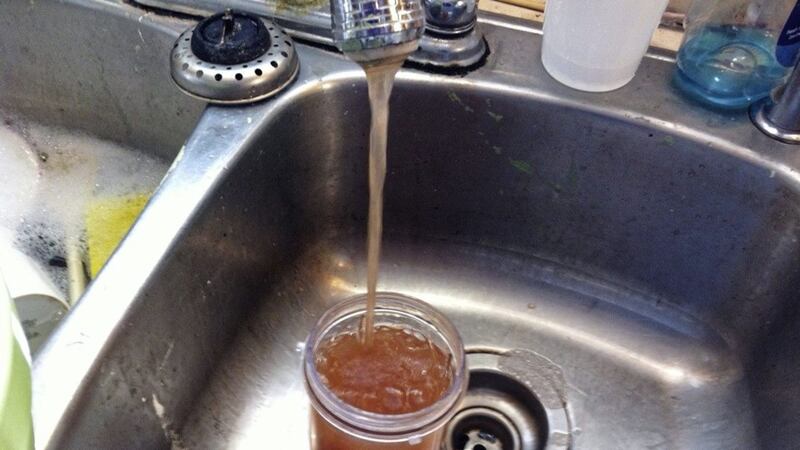JANUARY is a time when people make changes and commitments for the year ahead, whether it’s putting their finances in order, getting into shape, or introducing more positive behaviours to their lives. This year, that’s even more the case than usual as it’s not just the beginning of a new year, it’s also the beginning of a new decade.
This kind of thinking is also clearly in the minds of Northern Ireland’s politicians with the publication of the New Decade New Approach agreement. The document, in promising a new approach to government locally for the decade ahead, contains a commitment to sustainability in our politics, finances and approach to the environment.
Very often, when people make their new year’s resolutions, they aren’t sustainable and become good intentions rather than a long-term new way of doing things. Before you know it, 10 years of good intentions each January soon mount up and can mean a decade lost.
The key thing for the NI Executive is to ensure that New Decade New Approach isn’t just well-meaning words, but a genuine new approach to some very important issues. Though, we have been here before.
The reality is that the Executive is now in its third decade since the Good Friday Belfast Agreement and we have heard many resolutions and commitments before that haven’t come to pass. This includes commitments around financial responsibility, revenue raising and effective delivery. Though is there good reason to believe that this time could be different?
Firstly, there is a sense that the public mood has changed. A report by Deloitte just over a year ago for instance showed that 61 per cent of people in Northern Ireland would back greater spending on public services even if it meant some tax rises. This demonstrates that there might potentially be public willingness to accept the kind of revenue-raising Northern Ireland needs, if they can be assured that it will be spent to bring essential public services to the required standard.
And indeed, it would appear that the public mood in Northern Ireland over the three years of no Executive moved from indifference at the political situation to anger at the impact the lack of local decision-making and the deterioration in public services.
The same Deloitte report also looked at the impact of austerity across the UK. Almost 78 per cent of Northern Ireland households said that they had been affected not very much or not at all. This compares with 68 per cent for the UK as a whole.
Indeed, Northern Ireland has always received more in public expenditure per woman, man and child than anywhere else in the UK but has always generated much less revenue than most other regions.
The average person in Northern Ireland receives £1,100 more in public spending than their Welsh equivalent and £1,261 more than the average person in the North East of England. These are areas with similar economic conditions to NI. Meanwhile, revenue raised in Northern Ireland accounts for less than one per cent of its GDP, the lowest of any UK region.
So, all of this potentially creates an environment where tough decisions could potentially be made, including to raise revenue to support the delivery of better public services.
Indeed, New Decade New Approach says all the right things. But will positive actions follow? Optimists like myself hoped the approach of the new Executive would be to adapt Mario Draghi’s “do whatever it takes” commitment of 2012 when it comes to today’s public services.
But instead local politics seems to have quickly turned into Meatloaf’s “but I won’t do that”. I’m afraid, with red lines drawn, ruling out water charges, increases in tuition fees and other revenue raising, it looks a lot like the old approach.
A senior civil servant quoted in the aforementioned Deloitte report said that “it’s not like we don’t know what needs to be done. We just need the political leadership to do it”. New Decade New Approach sets out what needs done, but we need the political will to follow through.
So what needs done? We need to look at raising revenue through a range of means. Our default setting in Northern Ireland seems to have been that as many people as possible should pay nothing – i.e. if some people can’t pay, no one should. But we need to reverse this to have the starting position that everyone should pay, and then we work out who should be entitled to pay less or nothing.
Some of the potential revenue generators include the usual suspects such as higher tuition fees, water charges, rates, prescription charges, GP charges, and others.
We know that some of them just aren’t going to happen. One thing of note is that 'Dry January' appears to permeate New Decade New Approach, as far as domestic water charging is concerned anyway. But will the politicians’ red line on this matter mean that we see a public outcry due to brown lines - i.e. dirty water coming through the pipes – in the future?
More important than raising additional funding is what we do with the money we have already. There needs to be a relentless focus on delivery and (better) outcomes. From this perspective, fewer schools and hospitals are necessary. The RHI scandal shone a light on the way in which money has been used in Northern Ireland. We have been very good at getting public money into Northern Ireland, but we haven’t been very good at using it to its maximum potential.
The reality is, as I said before, Northern Ireland gets more money than anywhere else in the UK and generates less revenue. When we look at domestic rate levels, for instance, the average bill in Wales for household charges (i.e. water, sewerage and rates) is £1,826, whilst in Northern Ireland, it is £970. Scotland is the next lowest at £1,516, while the average household in England pays £1,742.
The long and short is that if the new approach for the new decade promised in the political deal means anything, it must mean more revenue raised locally but more importantly better value for public money. Will it be a new decade but same old approach? Let’s hope not. We need to be less Meatloaf and more Mario Draghi.
:: Richard Ramsey is Ulster Bank's chief economist in Northern Ireland (www.ulstereconomix.com)
:: Next week: Paul McErlean







